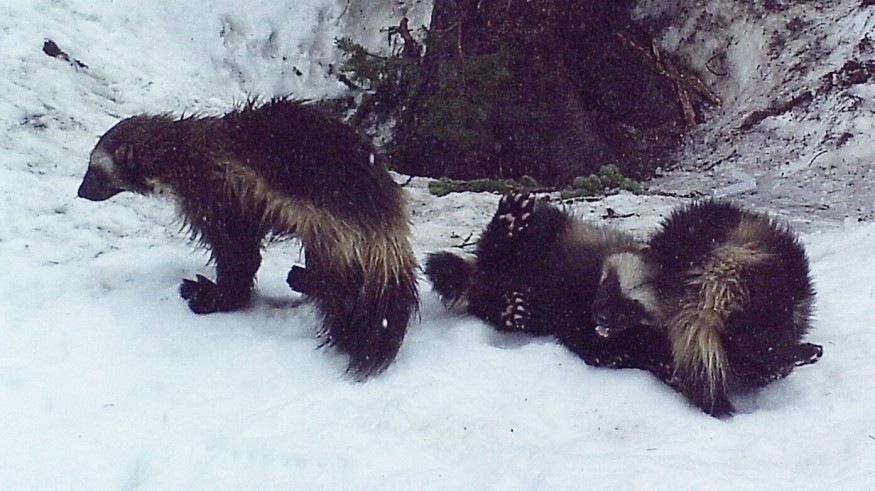After 100 years of absence, a reproductive female wolverine and her two kits were spotted by conservationists in Mount Rainier National Park. Conservationists believe that their presence in the national park suggests that ecological conditions are improving.
Wolverines
Despite the popularity of wolverine in the public's imagination, mainly because of the fictional character 'Wolverine' in the movie franchise 'X-Men,' these animals are super rare.
According to the National Park Service's (NPS) estimation, there are only about 300 to 1,000 wolverines that existed in the Lower 48. Additionally, it is estimated that their population density ranges from 6.2 individuals per 600 square miles of high-quality habitat, and 0.3 individuals in less suitable areas.

These omnivourous animals eat almost anything from nuts, berries, carrions to live prey such as hares, squirrel, marmots, and even the spiky porcupines. Wolverine plays an important ecological part as a meat-eater.
Wolverines typically weigh 20 to 40 pounds and are known to be incredibly powerful for their size, wherein they could take on wolves or bears to protect their territory or a carcass.
These carnivorous animals are no threat to park visitors, unlike their reputation for being aggressive in movies. They would likely flee as soon as it notices humans.
However, declines in their population or among the carnivorous species could mean a deteriorating food web in the area, the conservationists said. While the same holds true for the recovery of their population.
WOW: Sierra Nevada's Red Fox Spotted for the First Time Since 2011 at Yosemite National Park
Return to Mount Rainier
For more than 100 years, Mount Rainier has not seen a reproductive female wolverine. That is why when the conservationists spotted them, and they believe that the ecological conditions in the national park are improving.
Chip Jenkins, superintendent of Mount Rainier National Park, said that large-ranging carnivores on the landscape signal that conservationists are doing an excellent job in managing the wilderness.
Conservationist Jocelyn Atkins led the wolverines' discovery under the Cascades Carnivore Project, powered by scientists and volunteers dedicated to restoring the ecology vitality at the Cascade Mountains in British Columbia to northern California so they can host various carnivores.
The NPS noted that carnivores living at high elevations are more prone to risks because of their specialized behaviors and climate change.
Members of the Cascades Carnivore Project put up a camera in Mount Rainier, hoping to spot wolverines that can easily be distinguished by the unique patterns on their chest two years ago. Images taken by these cameras show that the freshly spotted wolverine I the national park is still nursing its kits.
Conservationists hope that it is not a one-time event but rather a sign that the wolverines are slowly going back to the national park.
The location of the cameras remains secret to protect the wildlife in the park from curious people. But visitors are encouraged to submit photos of wolverines or their footprints if they find some to be included in the Mount Rainier online wildlife database.
AMAZING: Exceedingly Rare Ultra White Grizzly Bear Spotted!
Check out more news and information on Animals on Science Times.










